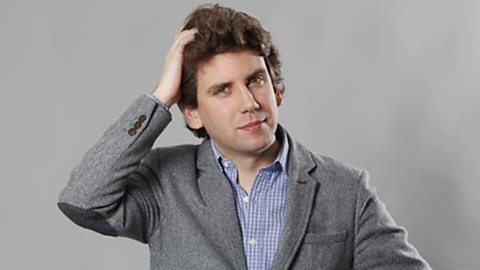Why, despite everything, I am still a Catholic
‘I have to confront the Church as it is’ (Getty)
I joined for the faith, I discovered humanity
Why on earth do we stay in a Church in which clerics commit sexual abuse? The easiest answer is realism. We tell ourselves that some sexual predators are drawn to seminaries, just as paedophiles seek out institutions that work with children, regardless of whether they’re religious or not. Public schools, choirs, scouts: the cancer grows everywhere.
And yet this argument just isn’t good enough, because when a sexual crime occurs in the Church it is 10 times worse. The betrayal is even deeper. Every offence committed by a cleric is a stain not just on the Church’s reputation, with which we can be inordinately obsessed, but the very soul of the institution. The Church asks its followers to confess their sins, but it seems far too slow to admit and atone for its own, and that hypocrisy has driven away thousands, possibly millions.
So, to repeat, why do so many of us remain? I’ve been thinking about this a lot in the wake of reports regarding Cardinal Theodore McCarrick, an American cleric accused of grooming and abusing young men. My instinct when reading this story was to say: “Thank God I’m a convert.” Some of my cradle friends joke that I’m not a proper Catholic because I wasn’t born into the faith, and they may have a point – I lack their foundation and sense of identity, and sometimes in church I find I simply don’t know what to do. My Latin is rusty. The hymns are unfamiliar. I have nothing to say when the subject of Ireland comes up.
On the other hand, I have been spared from clericalism. I like and respect priests; some of my best friends are priests. But I didn’t meet a Catholic cleric until I was in my 20s, and they don’t quite have the aura of authority for me that I sense they have for those who were born into the Catholic family.
I simply cannot imagine the world that McCarrick was reported to have lived in, in which “Uncle Teddy” would accompany the kids camping and even take one of them to a restaurant in San Francisco, where he put vodka in the drinks – a world in which McCarrick’s word was gospel and any questions raised about his behaviour could be shot down on the grounds, to quote the New York Times, that he was: “so beloved… and considered so holy, that the idea was unfathomable.”
Likewise, I am amazed, in my innocence, of the authority wielded by so many fallible, sometimes corrupt bishops. To me, there’s no magic to them at all – they’re just men in a big hat. I’m not saying I’m right or wrong about this, it’s just that when I signed up to be a Catholic, I joined a faith, not a congregation.
Of course, I quickly discovered that isn’t sustainable. The faith and the institution are inseparable: you’ll often hear ex-Catholics say they love one but not the other, and yet if you want the sacraments, you need the priest. If you want the priests, you need the bishops. If you want to fulfil the Church’s commandments to love your fellow man, you absolutely need the congregation, too.
And so, after years of telling myself that I don’t want anything to do with the political or social life of the Church, I’ve found myself inexorably drawn into both. It’s actually impossible not to hold a view on Humanae Vitae or the Irish referendum; it’s impossible not to care that Fr O’Reilly has come down with a cold.
And far from this picture being drawn in the media of clerics as complete disaster zones, I’m happy to report how many of them turn out to be kind, intelligent, thoroughly human people bearing incredible witness in a society that either disregards them or hates them. And as for the few flawed clerics rotting in the barrel, we have to deal with them as honestly as possible. I might like to imagine that McCarrick and I have nothing in common, but the reality is we belong to the same Church, and this has consequences for both of us. I have to confront the Church as it is, not as I wish it to be, kept at arms length.
…….
I joined for the faith, I discovered humanity, and now the next step, I suspect, is to recommit myself to the faith. How?
Catholicism has all the answers, including to its own problems, and it asks us to be courageous. We all have to admit that we are capable of doing wrong and of being hurt. These are two very different things, yes, but they both involve the wounding of a soul, and what the Church offers to the injured is reconciliation and healing.
Sometimes it’s astonishing to consider that the same Eucharist is offered to the remorseful prisoner as to the person they committed a crime against. This is a difficult mystery to contemplate, but it speaks to a love and justice that exist in a perfect state far beyond this fallen world.
Tim Stanley is a journalist, historian and a Catholic Herald contributing editor

No comments:
Post a Comment